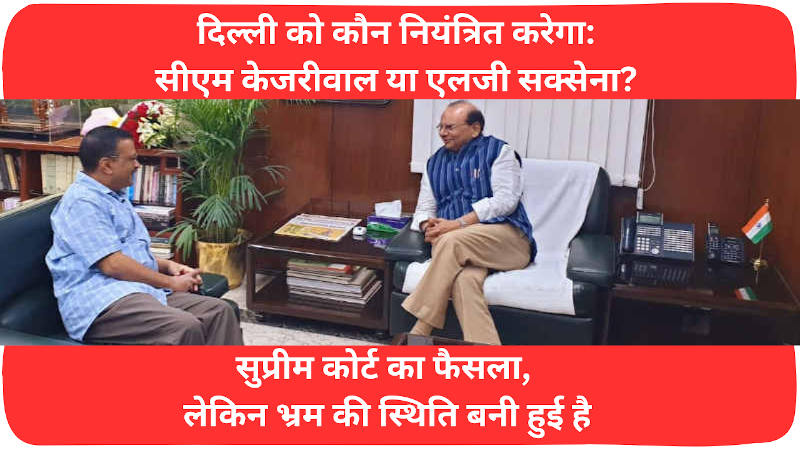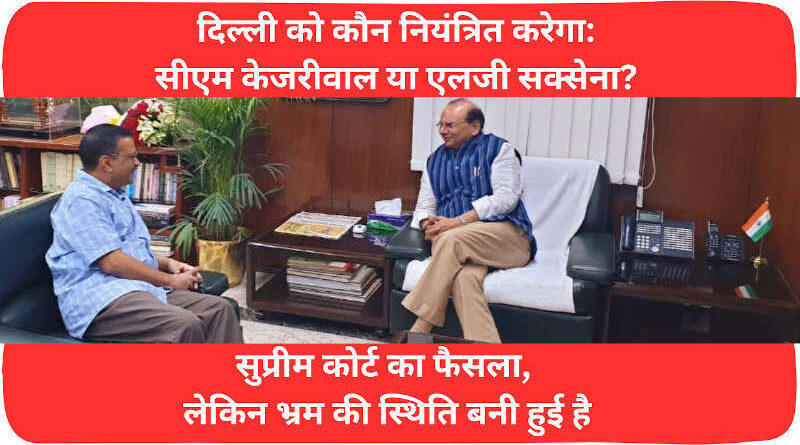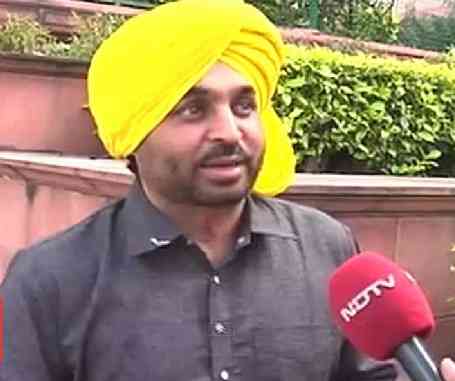How Supreme Court Erred in Giving Delhi Bureaucracy Control to Kejriwal Govt

How Supreme Court Erred in Giving Delhi Bureaucracy Control to Kejriwal Govt
Unfortunately, the Supreme Court neglected or failed to take into consideration all these corruption issues before passing its judgment in favour of the Kejriwal government.
By Rakesh Raman
The government of prime minister (PM) Narendra Modi has taken another step to interfere in the work of Delhi Government headed by chief minister (CM) Arvind Kejriwal.
In order to oppose a Supreme Court order of May 11 that gave Delhi bureaucracy control to the Kejriwal government, the Modi government promulgated an ordinance on May 19 to create a National Capital Civil Service Authority.
The new Authority will have the power to recommend the transfers and postings of bureaucrats including all Group A officers and officers of DANICS (Delhi, Andaman & Nicobar, Lakshadweep, Daman and Diu and Dadra and Nagar Haveli Civil Services) serving in Delhi.
Although the Supreme Court has given its order in favor of the elected government, the confusion persists. Earlier, the Government of National Capital Territory (NCT) of Delhi (Amendment) Act, 2021 had stated that the term “government” in Delhi means the Lt. Governor (LG) of Delhi and the elected government of Kejriwal cannot take any decision independently.
In other words, the Kejriwal government will have to take LG’s consent before taking any executive action. The new Supreme Court order of May 11 has conflict with the NCT law passed in 2021.
Since the Supreme Court and the Kejriwal government overlooked the NCT of Delhi (Amendment) Act, 2021, the new amendment is aimed to stop Kejriwal from misusing his authority against the bureaucrats – particularly those bureaucrats who are handling the alleged crime and corruption cases of Kejriwal and his colleagues.
The Government of National Capital Territory of Delhi (Amendment) Ordinance, 2023, will divest the Kejriwal government of the arbitrary powers that Kejriwal may use to take revenge on bureaucrats who are probing different corruption cases of Kejriwal and politicians in his Aam Aadmi Party (AAP).
These corruption cases include Delhi liquor scandal, school construction scam, money laundering cases, and misappropriation of huge public money by Kejriwal on his house renovation.
Along with Kejriwal, the other AAP politicians whose names appear in the investigating reports of the Central Bureau of Investigation (CBI) and the Enforcement Directorate are Satyendar Jain, Manish Sisodia, Sanjay Singh, and Raghav Chadha.
It is expected that a woman politician in AAP who loudly spreads lies in the so-called press conferences attended by naive journalists will soon be called for interrogation by the law-enforcement agencies.
|
Corruption Investigations It is good that the Modi government and its anti-corruption agencies are aggressively investigating the corruption cases of Aam Aadmi Party (AAP), Congress, and other opposition political parties as well as politicians. But these steps will only check corruption on the opposite side of the political fence. The Modi government should also ask the agencies to open and honestly investigate the corruption cases in which Modi and his Bharatiya Janata Party (BJP) colleagues are facing serious allegations. These cases include the PM-CARES Fund case, Rafale corruption case, Sri Lanka energy project case involving Gautam Adani’s group, as Adani is a close capitalist friend of Modi, Modi-Adani collusion case, Sahara-Birla payoff case, and a number of other cases in which Modi’s party colleagues are allegedly involved. More importantly, the corrupt politicians and bureaucrats must be arrested and jailed without delay because their presence in the public poses a serious threat to the citizens who want to live in a corruption-free environment. ~ Rakesh Raman |
Unfortunately, the Supreme Court neglected or failed to take into consideration all these corruption issues before passing its judgment in favour of the Kejriwal government.
The Supreme Court should also find out how Kejriwal and his colleagues are getting vindictive against the bureaucrats who are investigating their crime and corruption cases. For example, it is alleged that the officer who was probing the Kejriwal house renovation case was divested of his duties by the Kejriwal government.
The officer has also alleged that his office room was ransacked and the documents pertaining to Kejriwal’s house renovation are missing. If this is true, then the Supreme Court should know before its decisions that the Delhi Government is being run by criminals who are hell-bent to hoodwink the voters and grab power by hook or by crook.
Meanwhile, reports suggest that the central (Modi) government has filed a petition in the Supreme Court seeking a review of its verdict that granted control over transfers and postings of bureaucrats to the Kejriwal government.
Since most Supreme Court judges lack domain knowledge, they take casual decisions which cannot be challenged. The situation is worse in the high courts and lower courts.
If you evaluate the Supreme Court judgments through an Artificial Intelligence (AI)-based expert system, you will find that almost all the judgments or delays are either wrong or biased. It is once again visible in the standalone decision that the Supreme Court took in favour of the Kejriwal government.
The new National Capital Civil Service Authority will be headed by Delhi CM and will include the chief secretary and the principal secretary (Home). The Authority will take decisions by the majority of votes of the members present in the Authority meetings.
By Rakesh Raman, who is a national award-winning journalist and social activist. He is the founder of the humanitarian organization RMN Foundation which is working in diverse areas to help the disadvantaged and distressed people in the society. He has also been publishing The Integrity Bulletin news magazine since 2018 to cover local and international corruption issues to engage with different stakeholders who are trying to combat corruption in the world.






